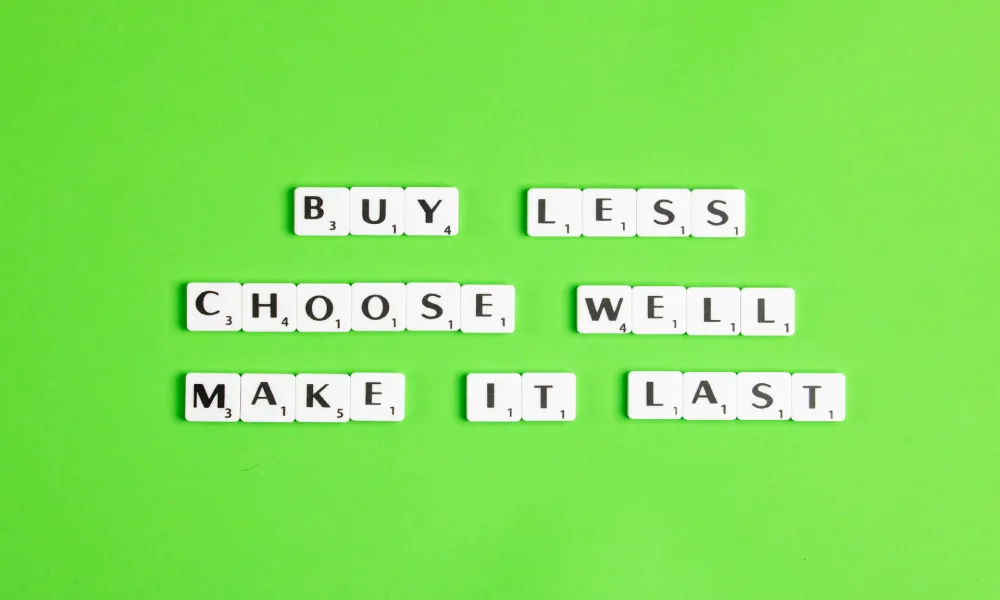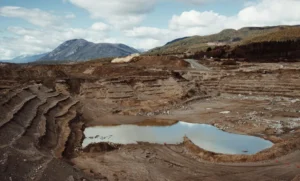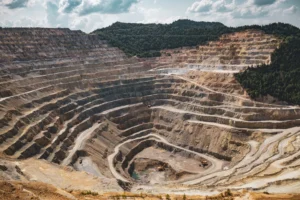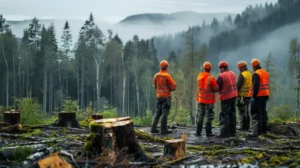Have you ever stood in front of your overflowing trash can and felt guilty? I certainly have. That moment became my turning point towards embracing zero waste living, a journey that changed not just my home but my entire perspective on consumption and sustainability.
Time to Change
In a world drowning in plastic and waste, the zero waste lifestyle is becoming a necessity. Every year, each American generates approximately 1,800 pounds of trash, a staggering number that shows why sustainable living isn’t optional anymore. The good news? Embracing an eco-friendly lifestyle is easier than you might think, and the benefits extend far beyond environmental impact.
The Zero Waste Mindset
Zero waste living is not about perfection but it’s about progress. As someone who’s been practicing a minimalist lifestyle for years, I’ve learned that the journey toward sustainability starts with small, intentional changes. The core principle of zero waste tips isn’t about generating zero trash overnight; it’s about gradually reducing our environmental footprint while creating a more meaningful relationship with our possessions and the environment.
Why Choose Green Living?
The benefits of adopting a zero waste lifestyle are multifaceted:
- Environmental Impact: By embracing sustainable living, you directly reduce landfill waste and ocean pollution.
- Financial Benefits: Green living often leads to significant savings as you buy less and choose reusable alternatives.
- Mental Clarity: A minimalist lifestyle naturally reduces stress and increases mindfulness.
- Better Health: An eco-friendly lifestyle typically involves less exposure to harmful chemicals and processed products.
Practical Zero Waste Tips for Beginners
Start in the Kitchen
The heart of zero waste living often begins in the kitchen. Here’s how to get started:
- Proper waste storage
- Replace plastic wrap with beeswax wraps
- Use glass containers for storage
- Shop with reusable produce bags
- Start composting kitchen scraps
Bathroom Transformations
The bathroom is another area where sustainable living can make a huge impact:
- Switch to bar soap and shampoo
- Use a bamboo toothbrush
- Try reusable cotton pads
- Go for plastic-free menstrual products
Mindful Shopping
A key aspect of an eco-friendly lifestyle is transforming how we shop:
- Carry reusable bags always
- Shop at bulk stores
- Choose package-free products
- Support local farmers markets
Advancing Your Zero Waste Journey
As you become more comfortable with basic zero waste tips, you can explore deeper aspects of sustainability:
Minimalist Wardrobe
Fast fashion is a major environmental concern. Consider:
- Building a capsule wardrobe
- Shopping second-hand
- Choosing quality over quantity
- Learning basic repair skills
Home Management
Sustainable living extends to how we maintain our homes:
- Make natural cleaning products
- Use cloth instead of paper towels
- Repair items instead of replacing them
- Practice energy conservation
Recycling in Zero Waste Living
While the main goal of zero waste living is to reduce waste at its source, recycling is very important in sustainable living. However, it’s important to understand that recycling should be our last resort, not our first defense against waste. Here’s how to make recycling more effective in your eco-friendly lifestyle:
Understanding Recycling
- Reduce first
- Reuse when possible
- Recycle as a last resort
Smart Recycling Tips for Green Living
- Learn your local recycling guidelines
- Clean containers before recycling
- Avoid wish-cycling (recycling items hoping they’re recyclable)
- Separate different materials properly
Waste Management Strategies for Sustainable Living
Effective waste management is fundamental to a zero waste lifestyle. Here’s how to reduce waste systematically:
1. Conduct a Waste Audit
- Track your waste for a week
- Identify major waste sources
- Plan alternatives for common waste items
2. Implement a Sorting System
- Create designated bins for different materials
- Set up a composting system
- Establish a recycling station
Renewable Energy in Your Zero Waste Journey
The shift to renewable energy sources is a natural extension of an eco-friendly lifestyle. Here’s how to incorporate clean energy into your sustainable living practices:
Home Energy Solutions
- Install solar panels if possible
- Switch to LED lighting
- Use smart thermostats
- Consider wind energy options
Transportation Choices
- Go for electric or hybrid vehicles
- Use public transportation
- Practice car-pooling
- Embrace bicycle commuting
Small-Scale Renewable Projects
Even in apartments, you can support sustainability through:
- Portable solar chargers
- Solar-powered outdoor lights
- Wind-up emergency radios
- Energy-efficient appliances
The Economic Benefits of Green Energy
Incorporating renewable energy into your zero waste lifestyle isn’t just environmentally conscious – it’s financially smart. While initial investments in sustainable energy solutions might seem substantial, the long-term savings make them worthwhile:
- Reduced utility bills
- Government incentives and tax breaks
- Increased property value
- Lower maintenance costs
- Saving natural resources
Community Impact and Collective Action
The power of zero waste living multiplies when communities work together. Consider:
- Joining local sustainability groups
- Participating in community solar projects
- Organizing neighborhood recycling drives
- Sharing renewable energy success stories
The Social Impact of Zero Waste Living
One of the most rewarding aspects of embracing a zero waste lifestyle is its ripple effect. Your commitment to green living can inspire friends, family, and community members to make their own changes toward sustainability. Share your journey, but remember to be gentle – sustainable living is about progress, not perfection.
Overcoming Common Challenges
Many people worry that zero waste living is expensive or time-consuming. While there might be initial investments in reusable items, the long-term financial benefits often outweigh the costs. As for time, many zero waste tips actually simplify our lives by reducing consumption and focusing on what truly matters.
The Future of Sustainable Living
As our world faces increasing environmental challenges, the zero waste lifestyle becomes more crucial than ever. The good news is that eco-friendly lifestyle options are becoming more accessible and mainstream. Companies are responding to consumer demand for sustainable products, and communities are developing better infrastructure for recycling and composting.
Your Zero Waste Journey Starts Now
Remember, every step toward sustainable living, whether it’s improving your recycling habits or shifting to renewable energy, contributes to a larger movement. By combining zero waste tips with renewable energy practices, we create a more thorough approach to environmental stewardship and green living.
The path to sustainability is ongoing, and each improvement in our waste management and energy choices brings us closer to a truly eco-friendly lifestyle. As technology advances and awareness grows, the opportunities for incorporating sustainable practices into our daily lives will only increase.
By embracing these principles of minimalist lifestyle and eco-friendly living, we’re not just changing our own lives – we’re contributing to a global movement toward a more sustainable and conscious world.
FAQ's
What is the zero waste lifestyle?
A zero-waste lifestyle is about living simply, using less, and reusing or recycling what you do use to minimize waste.
What are the 5 R's of zero waste living?
The 5 R’s of zero waste living are: Refuse, Reduce, Reuse, Recycle, and Rot.
Is it possible to live in a zero waste society?
While a completely zero-waste society may be challenging, it’s possible to significantly reduce waste through collective efforts in sustainable practices and efficient waste management systems.
How to lead a zero waste lifestyle?
To live a zero-waste lifestyle, you can start by saying no to unnecessary things, using less, reusing what you have, recycling properly, and composting food scraps.




